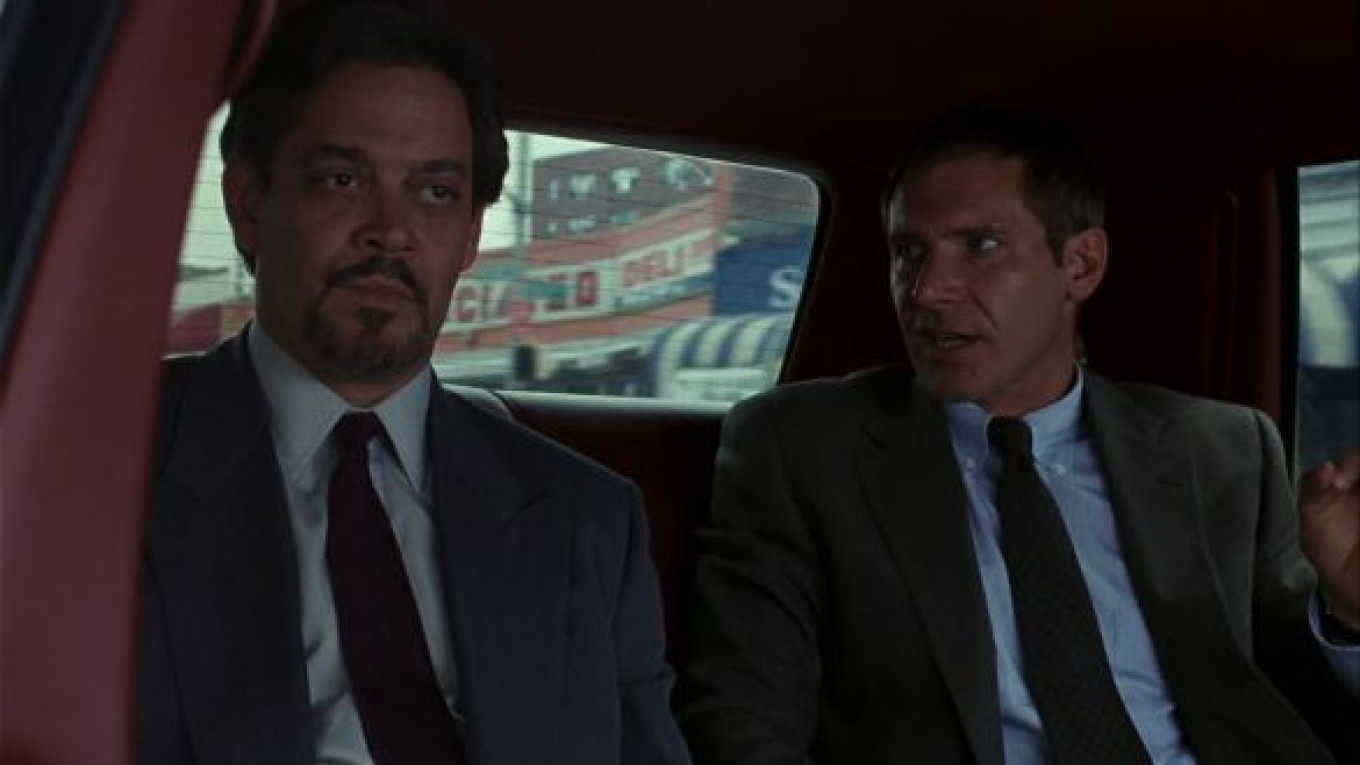Bestselling American author and lawyer Scott Turow spoke recently at the Moscow American Center, discussing both his writing and legal career. Turow, whose legal thrillers have sold more than 25 million copies worldwide, described his rise from aspiring author to president of the American Authors' Guild, as well as his work on celebrated court cases in the United States.
He is the author of two non-fiction and eight fiction books, which have now been translated into 20 languages. His first novel, "Presumed Innocent," was also made into a major 1990 movie starring Harrison Ford and Brian Dennehy.
Yet Turow, who entered Harvard Law School in 1977 after a lectureship at the Stanford English department and two unsuccessful attempts to publish a novel, describes his career path as saddled with doubts. "I have long struggled to be a writer," he said in an interview. "My decision to go to law school was essentially the result of an identity crisis."
Paradoxically, it was the move away from literary study that led to the publication of Turow's first book. "One L," an autobiographical narrative describing his experience as a first-year Harvard student, instantly topped the bestseller lists and is now often referred to as "a bible for prospective law students."
"I'm not sure where the popularity of 'One L' stems from," he said. "It appeared at a time when the legal profession at large was moving into the spotlight in the U.S. What continues to appeal to readers may be its focus on identity, the common struggle of law students to reconcile legal logic with reality, where the distinction between right and wrong is often far more blurred."
"Writing fiction has enabled me to capture the nuances and ambivalence of that distinction," he added. "Literature and law offer completely different models of the world, and the literary one is definitely subtler."
Turow became a novelist after leaving the U.S. Attorney's office in Chicago, where he had prosecuted several high-profile corruption cases and served as lead counsel in a federal prosecution of Illinois judicial corruption cases.
"I have drawn on these experiences in many of my novels," he said. "In one of my books, the protagonist finds himself in front of a judge whose uncle he has sent to jail. What I did also led to the imprisonment of judges, whose friends I would later encounter during trials."
Later, he shot to fame after winning the release of Alejandro Hernandez, who had spent 11 years on death row for a crime he did not commit. An appointment to the commission considering the reform of the Illinois death penalty followed, as well as Turow's second non-fiction work.
"Ultimate Punishment," a series of autobiographical reflections based on his pro bono work on behalf of death-row inmates, presents both sides of the debate. However, the author now describes himself as a firm opponent of capital punishment.
"I don't wish to delve into the ethical aspect of the problem," he said during a discussion with the audience. "However, no legal system is infallible, and it is not possible to rule out 'unlawful' or indefensible executions."
Turow did not want to discuss the Russian legal system, restricting himself to saying that "its politicization is an unwise course to take."
The author is now working on a new novel, loosely based on the Greek myth of Castor and Pollux, twin brothers, transformed into the constellation Gemini after the God Zeus let Pollux share his immortality with his murdered twin.
"I have always been fascinated by twins," he said. "My younger sister was a twin, although the other baby was never born. In childhood, I would often be confused, thinking that I had myself been a twin. This book will tell the story of two brothers with very different lives, suddenly intertwined by a murder."
Turow's visit was part of the Speakers Program run by the U.S. Embassy, which involves yearly talks by major American authors. "We were hoping to repeat the success of last year's talk by Michael Cunningham, author of 'The Hours,'" said Maria Lvova from the cultural section of the embassy. "We have already targeted several authors who might be willing to speak next year."
She named Chuck Palahniuk, Jonathan Franzen and Jonathan Safran Foer as possible future speakers at the American Center. "However, we are also actively reaching out to up-and-coming authors," she said.
The Moscow American Center is located in the Foreign Language Library on Nikoloyamskaya Street (metro Taganskaya and Kitai-Gorod). It provides library and reference services for the general public and hosts cultural and educational programs.
American Center. Foreign Literature Library. 1 Nikoloyamskaya Ulitsa. Metro Taganskaya. Tel. (495) 926-4554.
A Message from The Moscow Times:
Dear readers,
We are facing unprecedented challenges. Russia's Prosecutor General's Office has designated The Moscow Times as an "undesirable" organization, criminalizing our work and putting our staff at risk of prosecution. This follows our earlier unjust labeling as a "foreign agent."
These actions are direct attempts to silence independent journalism in Russia. The authorities claim our work "discredits the decisions of the Russian leadership." We see things differently: we strive to provide accurate, unbiased reporting on Russia.
We, the journalists of The Moscow Times, refuse to be silenced. But to continue our work, we need your help.
Your support, no matter how small, makes a world of difference. If you can, please support us monthly starting from just $2. It's quick to set up, and every contribution makes a significant impact.
By supporting The Moscow Times, you're defending open, independent journalism in the face of repression. Thank you for standing with us.
Remind me later.






